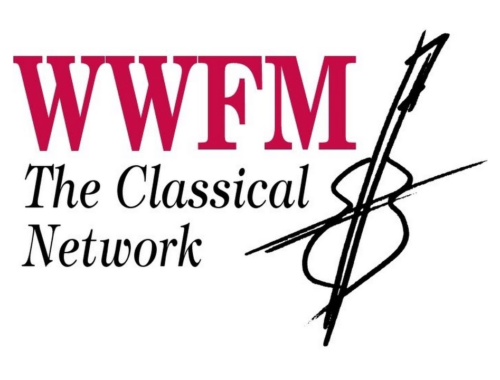
SPOTLIGHTS
-

THE LAREDO TIMES
Spotlights Molly’s appearance at Texas A&M University as part of the Master Performers @TAMIU Series.
-

WWFM
Kevin Mayner of WWFM presents a conversation with Molly Morkoski and friends.
-

SANTA BARBARA NEWS PRESS
Josef Woodard interviews Molly Morkoski ahead of her concert at Camerata Pacifica.
REVIEWS
“The piano’s role was indeed the backbone of this performance, thanks to the work of Morkoski (below), who again—as in the opening concert program last weekend—showed herself a born Schubert pianist of great flair.”
— John W. Barker for The Well-Tempered Ear
“Violinist Kristin Lee and pianist Molly Morkoski brought Beethoven himself into the room – the wit, drama, irony, intimacy, and brilliant imagination — truly one of the most satisfying musical experiences in memory.”
— Joseph Miller for the Santa Barbara Independent
“The newbie here, and remember this name, was pianist Molly Morkoski, making her Camerata debut with the bold confidence and interactive grace one wants in a devoted chamber music maker. Ms.Morkoski has played in Santa Barbara before, and memorably, when she played from Charles Ives’ “Concord Sonata,” performing with soprano Dawn Upshaw at the Lobero back in 2007. It was one of those “wow” moments in that concert year, still lingering in the memory. Here she demonstrated her more than worthy powers as a robust addition to the Camerata roster.”
— Josef Woodard for the Santa Barbara Bew-Press
“Molly Morkoski devoted her set to three etudes by Gyorgy Ligeti. These works, drawn from the first two of Ligeti’s three books of etudes (18 in all, published between 1985-2001) proved so varied and substantial that you wished she were offering them all. Ms. Morkoski, an energetic, focused player, captured the nuances of the rhythmically vital “Rem” and the subtly shifting hues of the gentler “Arc-en-ciel. But she was at her best in her closing piece—actually the first of the etudes in Ligeti’s published order — “Desordre,” a brisk amalgam of Ligeti’s tart harmonic style and jazz, with Dave Brubeck and ragtime among the evident influences.”
— Allan Kozinn for the NY Times
“Morkoski’s warmth and grace increased to a fever pitch as she played keys at the ends of the piano, culminating in a subtle, breathtaking finale.”
— Olivia Giovetti for Time Out Magazine NY
“An added bonus on the program, due to the singer’s ailment (Dawn Upshaw), was an instrumental taste of her fine pianist, Molly Morkoski, and the work of another archetypically American composer, Charles Ives…a strong and sensitive pianist, Morkoski showed considerable insight into the complex soul of Ives’ music, as this movement’s lyrical…themes were subjected to sly Ives-ian deconstruction.”
— Josef Woodard for the Santa Barbara News Press
“In the Piano Trio No. 3 in F minor the composer, Dvorak, bares his emotional soul following the death of his mother. This dramatic anxiety was well realized by the players, with pianist Molly Morkoski unstinting in the power and force needed for this music.”
— Alan Becker for the Sun-Sentinel Miami
“The earliest work on the program, the avant-garde classic “Vox Balaenae” (1971), is driven by bending, microtonal flute and cello pitches and percussive inside-the-piano writing. Tara Helen O’Connor, the flutist; Priscilla Less, the cellist; and Molly Morkoski, the pianist, played the work with an intensity that was actually a refined kind of virtuosity.”
— Allan Kozinn for the NY Times
“There was a lot of interesting piano music. The now-classic etudes by Perle extend the genre and our knowledge of the instrument, particularly the possibilities of the pedal. They are so difficult that when the first set was premiered in Jordan Hall 30 years ago, there was blood on the keyboard; today’s young virtuosos take them in stride. Ramon Zupko’s “Somewhere Gladly Beyond” is ecstatically affectionate; Bright Sheng’s “My Song” is a roots piece, in which a Western instrument recalls Chinese sonorities, Jonathan Harvey’s “Tombeau de Messiaen” evocatively mingles live and electronic piano sounds, and Spano’s own “under water” is a tribute to French Impressionistic music in bright, pealing high-noon bell tones. All the pianists were remarkable, Molly Morkoski outstanding among them.”
— Richard Dyer for the Boston Globe
“These is no unanimous opinion on how accessible George Perle’s work is, but to the extent that it has to be come to, this ear has come to it — particularly to his piano music. Six New Etudes, from 1985, are fast, pushy, persuasive, and notey, in the meaty exercise fach. Elizabeth Pridgen has a modest manner and a big piano presence, while Molly Morkoski, the New Fromm Pianist, was exhilarating as she tore through these and anything else she sat down to play.”
— Leslie Kandell for American Record Guide